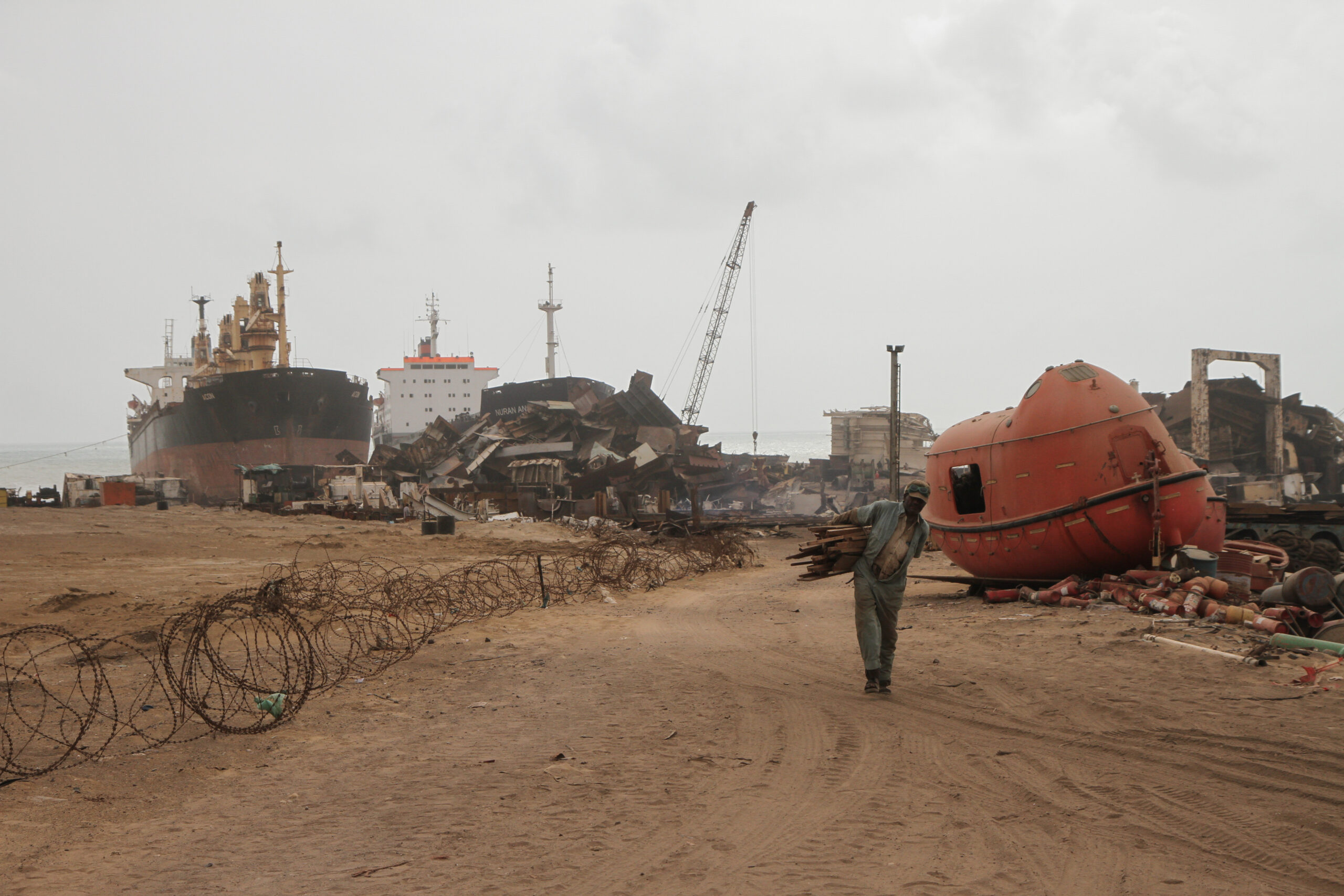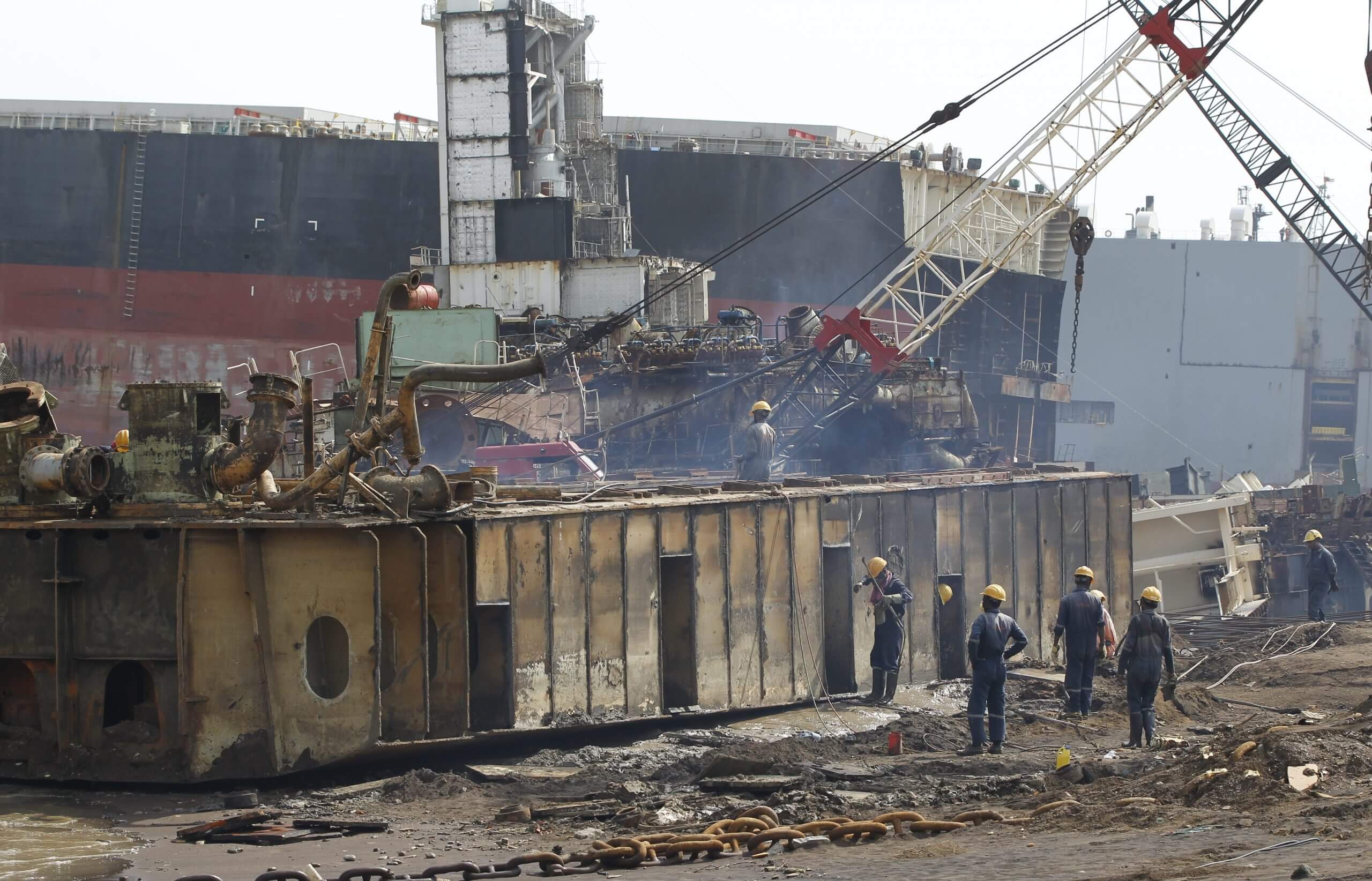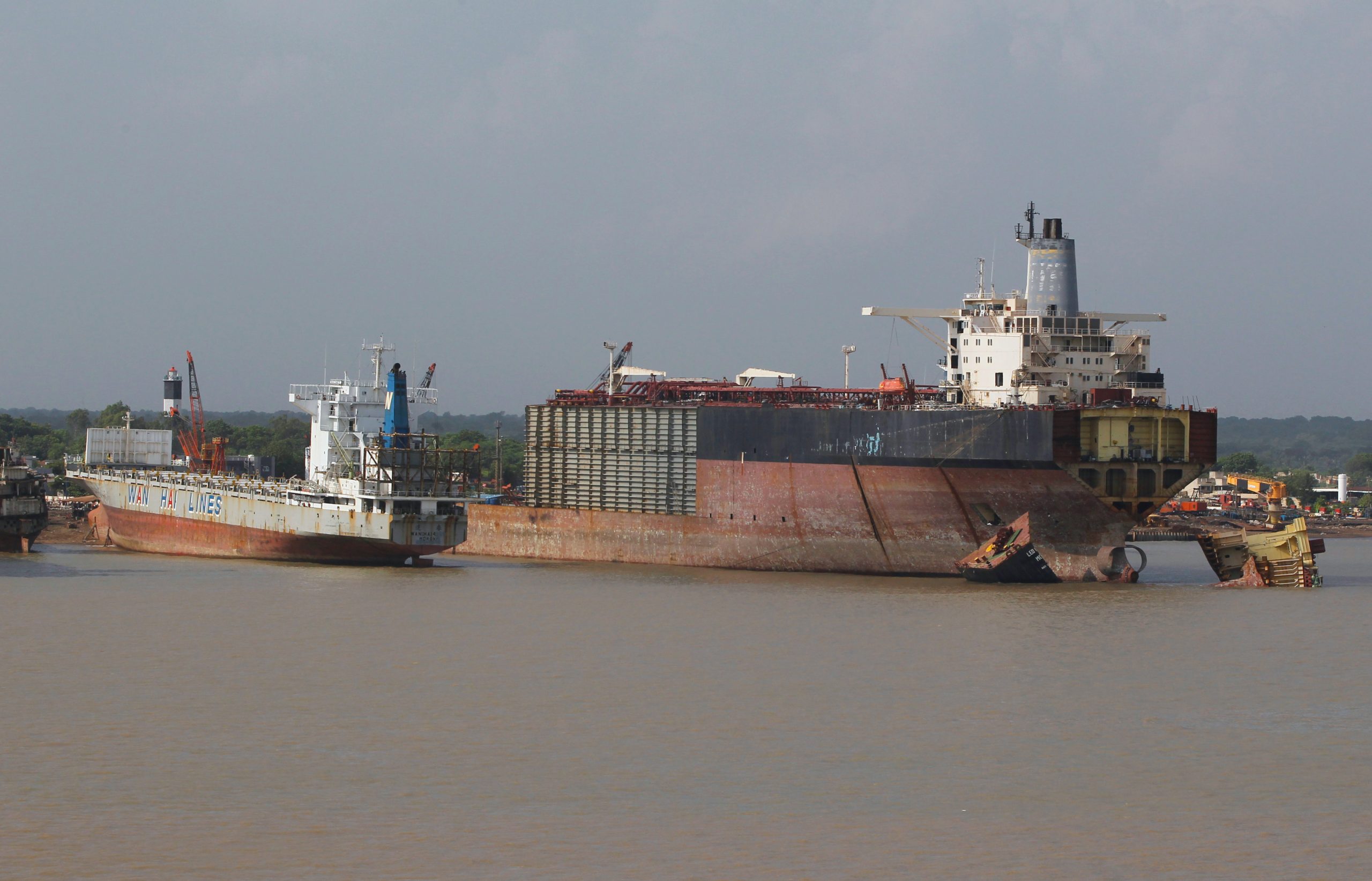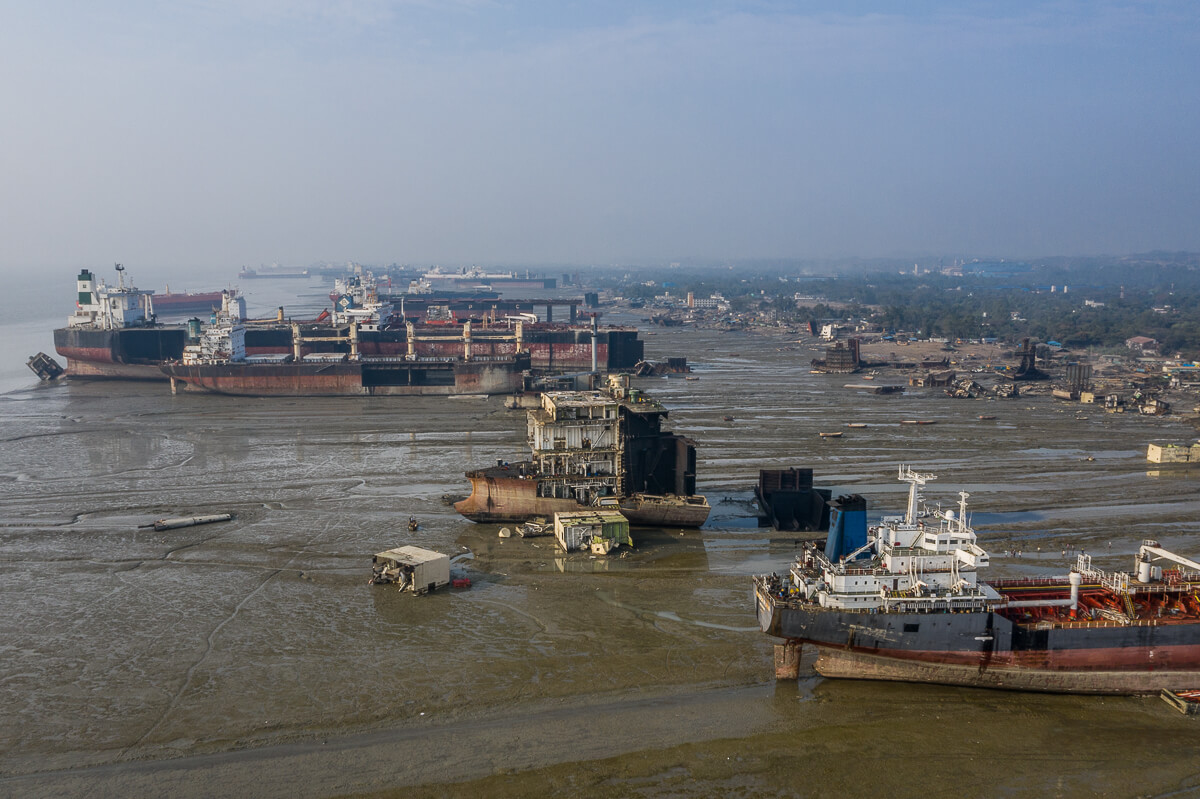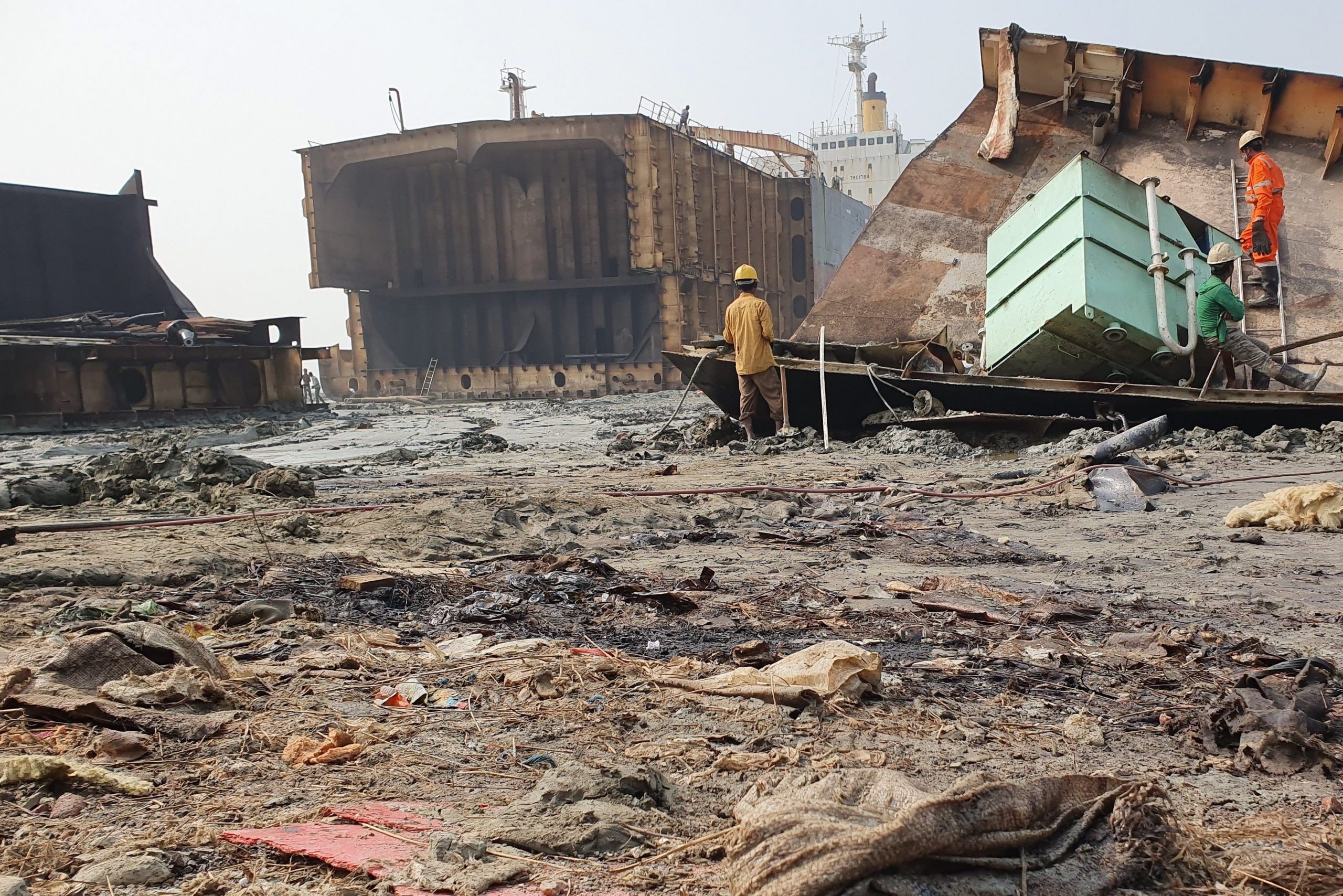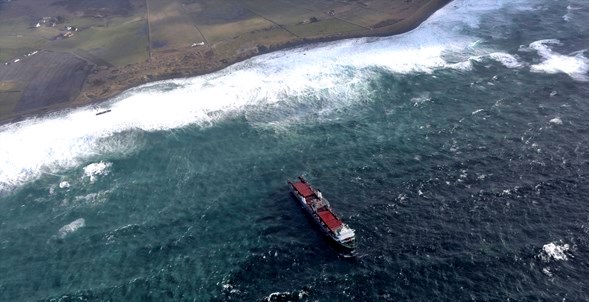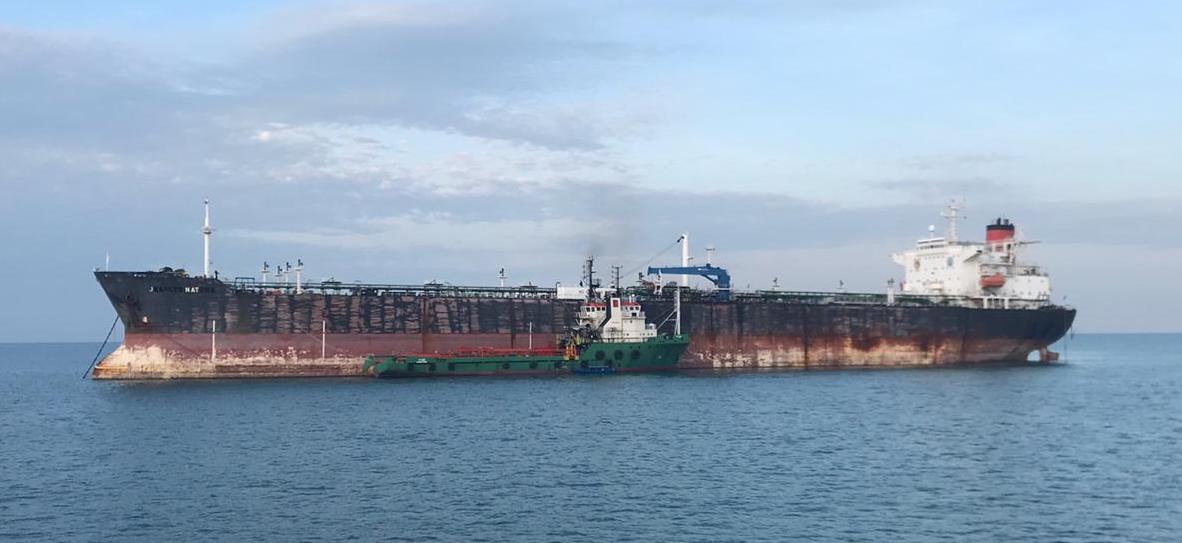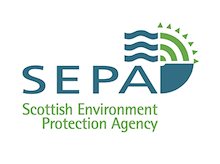The NGO Shipbreaking Platform, Basel Action Network (BAN), BAN Asbestos France, International Ban Asbestos Secretariat (IBAS), İstanbul Isig Meclisi and Brazilian ABREA have alerted the Turkish Ministry of Environment and Urbanization about the legal, environmental and health risks linked to breaking the aircraft carrier São Paulo (ex Foch).
Already last year, the NGOs called upon both Brazilian and French authorities to ensure the safe and environmentally sound recycling of the Clemenceau’s sister ship, and recommended the use of one of the yards included in the EU list of approved ship recycling facilities, which is limited to vetted non-beaching operations in OECD countries. After a lengthy and tortuous auction process, the São Paulo was finally sold to Turkish EU-listed yard Sök Denizcilik and Ticaret Limited.
Now, the NGOs are calling upon Turkish authorities to ensure a proper characterization of the hazardous wastes on board the São Paulo so that the export and subsequent management of the toxics can be done in an environmentally sound manner. Like its infamous sister ship Clemenceau, whose misguided export to India was recalled to Europe at great expense due to violations of the Basel Convention, the São Paulo contains large amounts of hazardous substances within its structure, and is thus considered a hazardous waste under the Basel Convention. [1]
In view of the particularly large amounts of asbestos and other hazardous materials likely to be embedded within the vessel’s structure, local civil society groups, political leaders, technical experts and union organisers are now stepping out in strong opposition to the import of the vessel to Turkey. They have raised legitimate concerns about the lack of transparency on how asbestos and other wastes are managed [2], and that the price quoted for the purchase of the aircraft carrier is not financially viable if all the proper precautions are to be observed during the recycling of the vessel and the disposal of the hazardous wastes. No Inventory of Hazardous Materials (IHM) was provided during the sale and bidding process for the São Paulo, and it remains uncertain as to whether a proper independent audit or IHM has been performed since.
The NGOs are calling for an independent assessment of whether the plans on how to remove and dispose of the hazardous wastes on board the São Paulo meet the requirements for environmentally sound management and ensure that workers and local communities are not exposed to any risks. Given the very hazardous nature of the military vessel's materials, the shipment from Brazil and subsequent management plans should be fully transparent to any impacted communities and be supported by them.
Click here to access the open letter addressed to the Turkish Ministry of Environment and Urbanization.
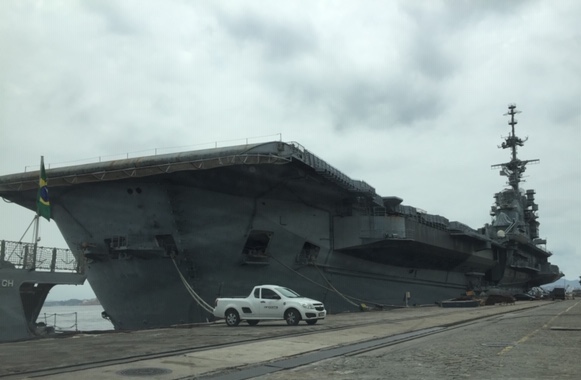
NOTES
[1] Based on the audits performed on the Clemenceau, it is estimated that São Paulo contains around 900 tons of asbestos and asbestos-containing materials, hundreds of tons of Polychlorinated Biphenyl (PCB)-containing materials and large quantities of toxic heavy metals on-board.
[2] Answering a Parliamentary Motion on 20 May 2021, the Turkish Ministry of Environment and Urbanization stated that 714 ships have been dismantled in Aliağa in the last five years, resulting in the disposal of 74.325 tons of hazardous waste, including approximately 250 tons of asbestos. The figure for asbestos seems grossly underestimated, taking into account that the yards in Aliağa have dismantled numerous military vessels; oil and gas units; and also older vintage RoRo/passenger ships operating in the Mediterranean, all of which are expected to contain large amounts of asbestos-contaminated materials.

